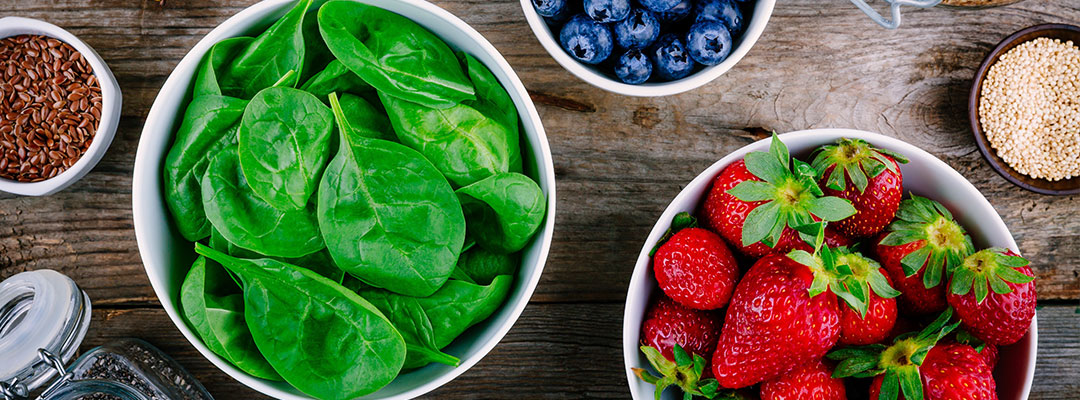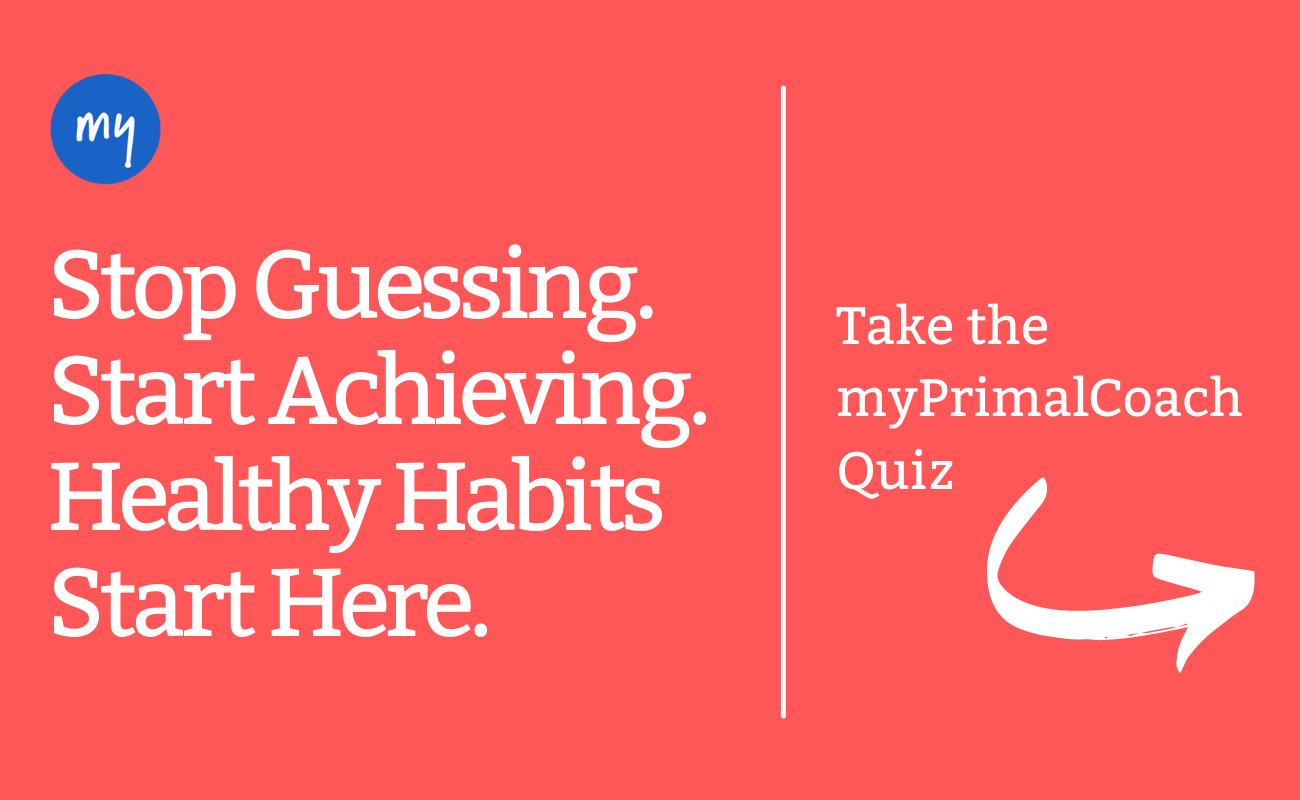Did you know you have an entire rainforest living in your gut and all of its animals need to eat…and they prefer something called microbiome superfoods? And it’s quite some rainforest at that! Trillions (yep, we’re talking Elon Musk level) of organisms inhabit this jungle in your belly at any given moment. They live amongst one another maintaining a balance to keep their home, and you, healthy.
The organisms of this inner rainforest are constantly in flux and you can keep them happy and thriving by consuming certain foods. But before we get into what those microbiome superfoods are, let’s take a step back and first define what exactly your gut is and why the health of your microbiome is so important.

What Is the Gut?
Gut is certainly a term you’ve heard before. Whether regarding the health of yours, a recent renovation on your kitchen, or maybe even the last time you spilled yours to someone, we tend to talk about our guts quite a bit. You may assume its just referring to your stomach, but it’s much more than that.
Gut is just a simple term for the gastrointestinal track, which is a group of organs consisting of the esophagus, the stomach, and both the small and large intestines. These organs are a major component of the digestive system. The gut itself is anywhere between 18-27 feet on average, depending on your size. This is approximately half the size of a badminton court (for all you badminton fans).
Your gut is responsible for digesting the foods we eat, absorbing nutrients, and expelling waste. It’s the barrier that protects you from the outside world as it is a major point of entry into the body and everything passing through your gut is considered exogenous (coming from outside of us). If things are working the way you want, your gastrointestinal tract allows nutrients in and keeps disease-causing pathogens out.
Researchers often compare our guts to the roots of a tree. While it may not provide us with the same kind of structure a tree’s roots do, its metabolic activities support us in a similar way. We aren’t able to see it (probably a good thing!) but it digests and absorbs essential nutrients and water from our food to sustain our bodies and every cell comprising them. However, just like a tree’s roots, when our gut is damaged or diseased, we get sick.
As Hippocrates noted many years ago, “All disease begins in the gut.” That being said, sounds pretty important to keep healthy, no?
What Is the Microbiome?
The microbiome is made up of the microbes that populate your gut. In other words, it’s everything from the toucans to the jaguars to the pythons and frogs that have made a home in your gut. There are trillions of microorganisms living in our bodies, including bacteria, fungi, and viruses. Collectively they weigh about 4.5 pounds. We provide them with shelter and food and they help us out with digestion, vitamin production, detoxification, regulation of cholesterol metabolism, providing resistance to pathogens, immune regulation, neurotransmitter regulation, regulation of gene expression, and more.
We could eat the most nutritious diet in the world, but if it weren’t for our microbiome buddies in our belly, we wouldn’t be absorbing much. Their primary role is to take the non-digestible components of the foods we eat and make them usable for us. Basically, they eat undigested macronutrients and vitamins.
These microbes are both beneficial bacteria as well as harmful bacteria—and we need them both to stay in balance to keep each other in check. Think about a rainforest without any predators at the top of the food chain. It would be a disaster! When the microbiome becomes out of balance, disease can ensue. Everything from irritable bowel syndrome, Crohn’s disease, and other digestive disorders, to depression and mental health struggles, diabetes and metabolic syndrome, Alzheimer’s, and autism has been linked to an unhealthy microbiome.
So let’s keep them happy! Following is a list of popular microbiome superfoods your gut will thank you for:
133 Microbiome Superfoods
While often used as a bit of a marketing buzzword, the Merriam-Webster Dictionary defines a superfood as “a food (such as salmon, broccoli, or blueberries) that is rich in compounds (such as antioxidants, fiber, or fatty acids) considered beneficial to a person’s health.” So which of these microbiome superfoods are particularly favored by our guts and why? Read on to find out!
Cruciferous Vegetables
Cruciferous veggies are rich in components, like fibers and other compounds, that certain “good” gut bacteria can utilize.
- Arugula
- Bok choy
- Broccoli
- Brussels sprouts
- Cabbage
- Cauliflower
- Collard greens
- Kale
- Horseradish
- Radishes
- Watercress
- Wasabi
Parsley Family
Members of the parsley family have compounds that are beneficial at fighting pathogens as well as reducing overall inflammation.
- Angelica
- Anise
- Asafoetida
- Caraway
- Carrot
- Celeriac
- Celery
- Chervil
- Cicely
- Coriander/cilantro
- Cow parsnip
- Cumin
- Dill
- Earthnut
- Fennel
- Hogweed
- Lovage
- Parsley
- Parsnip
- Smallage
Ginger Family
Ginger and its tight-knit family are excellent microbiome superfoods that aid with gut diversity and recovery.
- Ginger root
- Turmeric
- Cardamom
- Galangal
Onion Family
This family contains prebiotics, which feed probiotics, and are an excellent, easy, and delicious microbiome superfood to add to your plate.
- Onions
- Garlic
- Shallots
- Leeks
- Chives
- Scallions
Roots and Tubers
The root and tuber family contain carbohydrates that feed important probiotics in our guts as well as suppress the growth of certain pathogens.
- Potato
- Sweet potato
- Yam
- Cassava
- Taro
- Sunchoke or Jerusalem artichoke
- Lotus root
- Beets
- Parsnips
- Turnips
- Rutabagas
- Jicama
- Maca
Sea Vegetables
Veggies of the sea are a great microbiome superfood source of fiber that feed your gut bacteria as it is undigestible.
- Kelp
- Nori
- Dulse
- Hijiki
- Arame
- Agar agar
- Chlorella
- Kombu
- Spirulina
- Wakame
Mushrooms
Mushrooms offer prebiotics that help grow the microbiome.
- Button
- Cremini
- Portabello
- Shiitake
- Maitake
- Oyster
- Lions mane
- Enoki
- Beech
- King trumpet
- Chanterelle
- Morel
- Porcini
Citrus Fruits
Citrus family fruits contain compounds and probiotics that our microbiome thrives on.
- Blood orange
- Kumquat
- Navel
- Cara cara
- Mandarins
- Clementine
- Tangerine
- Tangelo
- Calamondin
- Lime
- Key lime
- Persian
- Kaffir
- Grapefruit: White, ruby red, oroblanco
- Lemons
- Meyer lemon
- Citron
- Yuzu
- Pomelo
Berries
Berries also contain compounds that act as prebiotics to feed our gut probiotics, as well as aid in inflammation—making them a microbiome superfood on many levels.
- Strawberry
- Blueberry
- Raspberry
- Blackberry
- Cranberry
- Boysenberry
- Lingonberry
- Elderberry
Apples
The pectin found in apples is a prebiotic for your gut and different varieties have different benefits so enjoy the lot!
- Pink lady
- Fuji
- Empire
- Granny smith
- Gala
- Golden delicious
- Honeycrisp
- Red delicious
- McIntosh
Nuts and Seeds
Nuts and seeds also contain fiber which impacts microbiome composition. Walnuts are a particularly beneficial microbiome superfood.
- Walnuts
- Almonds
- Brazil nuts
- Cashews
- Chia seeds
- Flax seeds
- Hazelnuts
- Hemp seeds
- Pecans
- Pistachios
- Pine nuts
- Pumpkin seeds
- Sesame seeds
- Sunflower seeds
Bonus Microbiome Superfoods
A handful of other superfoods make the list for gut health.
- Tea polyphenols have been shown to selectively repress the growth of certain undesirable gut microbes.
- Chocolate’s flavanol content aids in inflammation and interaction with gut microbiota.
- Coffee is rich in compounds that benefit gut probiotics.
- Many herbs and spices offer antimicrobial activity to handle pathogens as well as anti-inflammatory benefits.
- Honey and other bee products benefit the microbiome through non-digestible carbohydrates that serve as prebiotics as well as antimicrobial compounds.
Summary
With the plethora of gut-healthy, microbiome superfoods listed above, it shouldn’t be too hard to do your gut proud. Everyone’s rainforest looks different and it is constantly evolving day-to-day. Your best bet is to feed it the rainbow of real, whole foods while minimizing processed foods to keep your gut happy and overall health optimal. If you’re looking to help out the buddies in your belly and make some dietary and lifestyle changes, a myPrimalCoach is here to help get you started.

